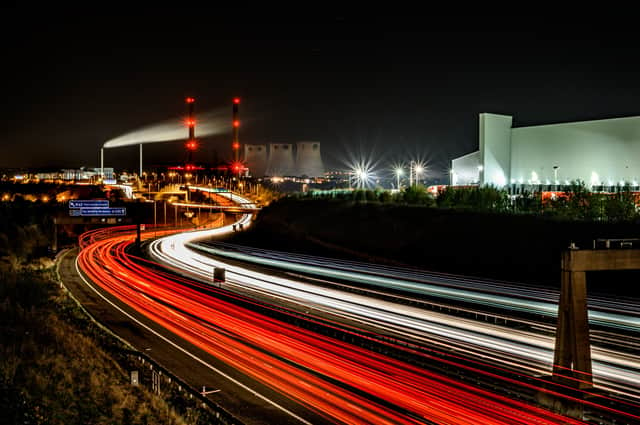Power giant offers green olive branch to community suppliers


Northern Powergrid says its “community energy engagement strategy”, to be published today, recognises that it will have to “build the capacity of others”, in the future, rather than benefit just its “most engaged stakeholders”.
The firm is one of seven network operators which make up the electricity grid across England and Wales. All are under industry and Government pressure to adapt to greener and less centralised systems in which energy is generated from renewable sources at volunteer-run plants, as well as by large-scale suppliers.
Advertisement
Hide AdAdvertisement
Hide AdAcross the UK, enough electricity was produced from community-run schemes in 2018 to supply 64,000 homes.
However, no industry-wide model has yet emerged to integrate them into the system.
In its latest response to the changes, Northern Powergrid says it will “listen and be transparent about why we want to make more of an effort to engage community and local energy organisation”.
It also promises financial support to small energy projects through an existing “communities fund”, and technical advice and training to develop the capacity of local suppliers.
Advertisement
Hide AdAdvertisement
Hide AdAt least 21 such co-operative projects are active in Yorkshire – among the largest of which are Sheffield Renewables, which has installed solar panels on roofs across the city and is developing hydro-electric schemes at Jordan Dam near the M1 and the nearby Kelham Island, and Whitby Esk Energy, a hydro-electric turbine on the River Esk at Ruswarp.
Anda Baumerte, sustainability manager at Northern Powergrid, said its new strategy proved a determination to do more than “just keep the lights on”.
She said: “This strategy demonstrates our commitment to go above and beyond to deliver on our common goals. We have to maximise resources that are available locally, and community-owned energy projects will often be the most efficient way to do it.
“It might mean a whole community or just a few houses sharing a pump, or having solar panels in shared areas.
Advertisement
Hide AdAdvertisement
Hide AdEmma Bridge, chief executive of Community Energy England, a membership body which represents small suppliers, said: “The path to net zero requires us to collaborate to ensure the transition is fair and leaves no community behind.”
Comment Guidelines
National World encourages reader discussion on our stories. User feedback, insights and back-and-forth exchanges add a rich layer of context to reporting. Please review our Community Guidelines before commenting.